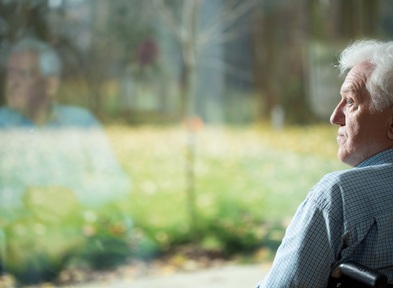Hospital discharges fail too many patients needing home care, charity reveals
Too many people are ‘falling through the gaps’ and must face unmet care needs when they leave hospital to go back home, a report by the British Red Cross reveals.

Findings from British Red Cross research on hospital discharge shows a lack of support and communication for discharged patients, with people left feeling unequipped and ill prepared to support their own recovery at home.
The charity has said that while most hospitals do have discharge checklists, there is considerable variation in discharge practices, with some people even sent back to homes with no hot water or heating.
Others who have become less mobile after leaving hospital, cannot even get up the step to their front door or feel unable to climb upstairs to use the bathroom. ‘Returning home can be a complex and difficult process. In some cases, people are left vulnerable to a risk of readmission to hospital’, revealed the charity’s report ‘Home to the unknown: Getting hospital discharge right’.
The British Red Cross research is based on interviews with people across the UK who were recently discharged after an unplanned stay in hospital without social care, as well as conversations with their carers and hospital staff.
After leaving hospital, care 'started to go downhill'
One patient quoted in the report said: “The care was first class on the ward but when we were leaving the hospital, that’s when it started to go downhill – no one told us what to expect when I got home or whether we’d be able to cope.”
The research revealed many patients interviewed did not know what their discharge notes meant and there was also confusion among patients about which part of the health and social care system was responsible for what. A lack of available feedback or data also meant NHS staff did not see the consequences of their discharge decisions.
Jane, aged 47, spent four days in hospital after a stroke. She was told she would be contacted by a member of the stroke support team within a couple of days to discuss next steps and put her in contact with a physiotherapist.
However, she and her partner waited two weeks before they had contact with a professional, during which time their concerns over her health and the impact it would have on their financial situation grew.
Jane described feeling “left completely in the dark” and “almost giving up hope” that they would get any help at all.
The emotional strain was often compounded by financial difficulties. Patients were concerned about the impact their hospital stay and ill-health would have on their financial situation.
Phillip and Anna (aged 81 and 84,) decided to have home care when Phillip was leaving hospital but because they were above the financial threshold for a social care package, they had to pay for private home care four times a day.
Anne, who has MS, said: “They cost a fortune – about £1,000 a week unless you’re on benefits. If you’ve got more than £23,500 I think, which is not a lot, then you pay the lot until it’s gone and then they take a lien on your house. This is a cruel system in a way.”
The charity's report stated: 'Every point of hand-off between clinical teams in hospital and from the hospital to the community is a potential point of success or failure for patient recovery.'
The charity has recommended a named non-clinical person give support throughout a person’s transition (through hospital and the move back home again). It also demands there be frequent chats with patients, their families and carers about clinical and non-clinical needs.
The charity wants to see five checks made, prior to discharge from hospital or within 72 hours of going home.
The five checks are:
• Practical independence (e.g. suitable home environment and adaptations).
• Social independence (e.g. risk of loneliness and social isolation, if they have meaningful connections and support networks).
• Psychological independence (e.g. how they are feeling about going home, dealing with stress linked with injury).
• Physical independence (e.g. washing, getting dressed, making tea) and mobility (e.g. short-term wheelchair loan).
• Financial independence (e.g. ability to cope with financial burdens).
To read the full report visit the British Red Cross website.
Latest News
 29-Jul-24
Dementia Bus gives carehome.co.uk staff insight into life with dementia
29-Jul-24
Dementia Bus gives carehome.co.uk staff insight into life with dementia
 27-Jul-23
UK's top home care agencies in 2023 revealed
27-Jul-23
UK's top home care agencies in 2023 revealed
 30-Nov-22
A quarter of older people keep their falls secret from family
30-Nov-22
A quarter of older people keep their falls secret from family
 29-Nov-22
'Covid-19 has not gone away' say terminally ill
29-Nov-22
'Covid-19 has not gone away' say terminally ill
 28-Nov-22
IT consultant who received poor care opens 'compassionate' home care business
28-Nov-22
IT consultant who received poor care opens 'compassionate' home care business